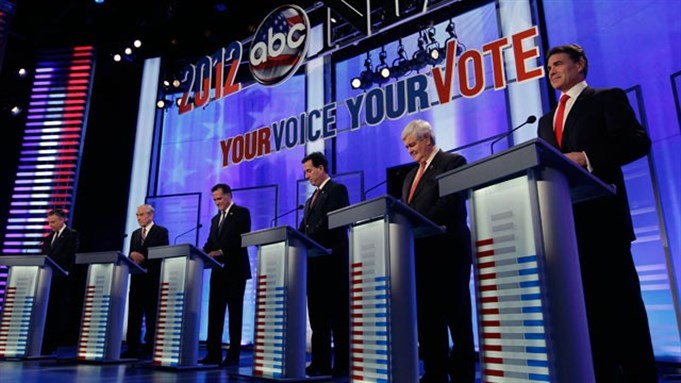Members of the Muslim Brotherhood gathered outside their headquarters on Friday March 22 2013 in the Cairo suburb of al-Moqattam in anticipation of opposition marches to the building. Clashes broke out that same day between opposition protesters and both security forces and supporters of the Muslim Brotherhood.
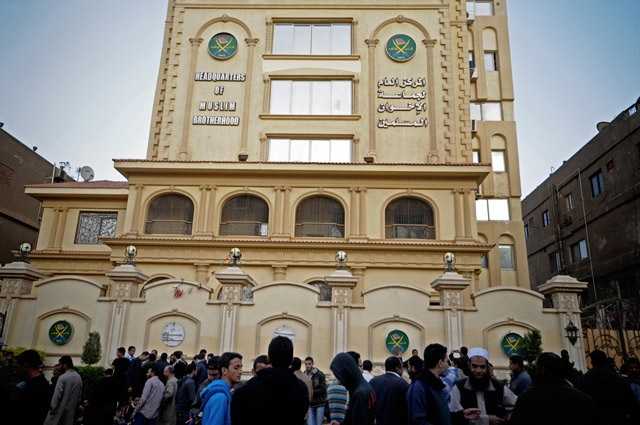
[Members of the Muslim Brotherhood gather outside their headquarters in Cairo, Egypt as opposition
protesters clash with Brotherhood members less than a mile away, near El-Hamd mosque. 22 March 2013
(Photo by Jonathan Rashad)]
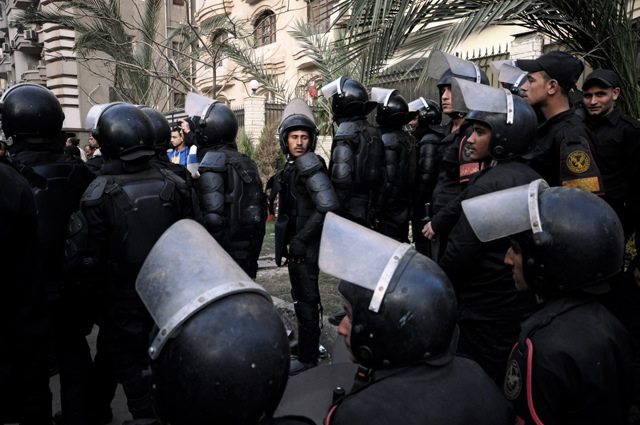
[Security forces guard the Muslim Brotherhood’s headquarters in Cairo, Egypt during clashes between
protesters opposed to President Mohamed Morsi and members of the Muslim Brotherhood. 22 March 2013
(Photo by Jonathan Rashad)]
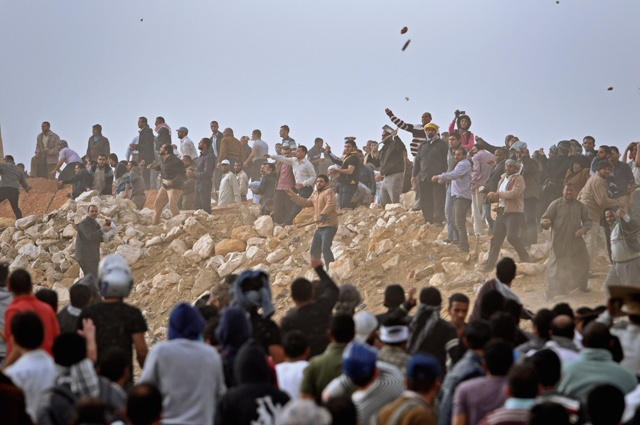
[Opposition protesters clash with members of the Muslim Brotherhood near the group’s headquarters
in Cairo, Egypt. Anti-Muslim Brotherhood protests were organized in objection to decisions made by
Brotherhood affiliate President Mohamed Morsi. 22 March 2013 (Photo by Jonathan Rashad)]
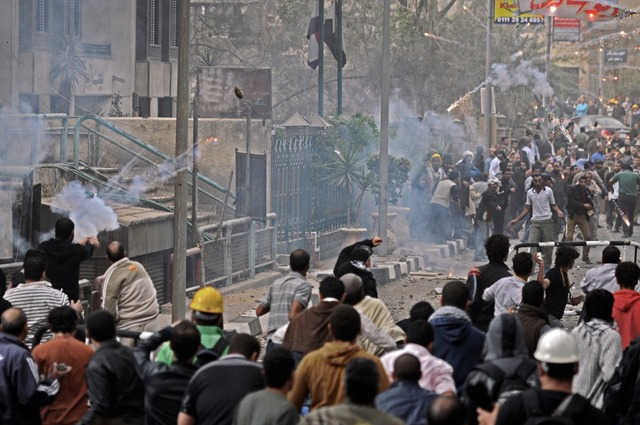
[Protesters opposed to President Mohamed Morsi launch fireworks at members of the Muslim Brotherhood
during clashes near the Muslim Brotherhood’s headquarters in Cairo, Egypt. 22 March 2013 (Photo by
Jonathan Rashad)]
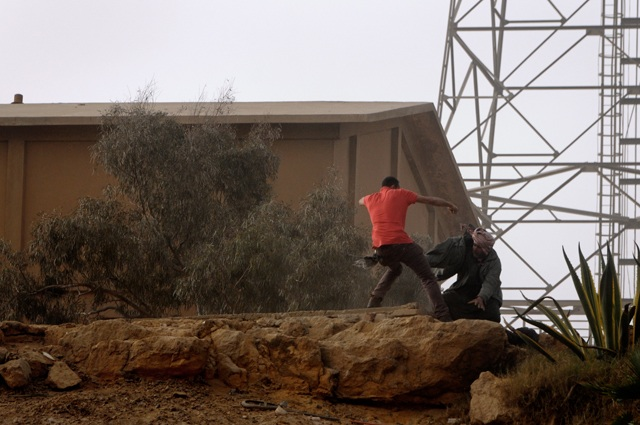
[Anti-Morsi protester in a confrontation with a member of the Muslim Brotherhood during clashes
near the Muslim Brotherhood’s headquarters in Cairo, Egypt. 22 March 2013 (Photo by Jonathan Rashad)]
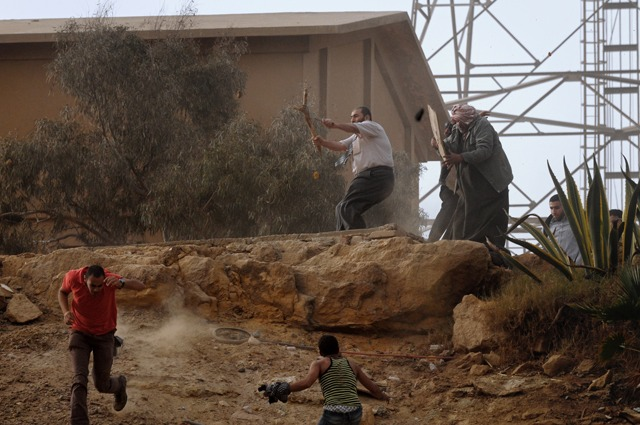
[Protesters opposed to President Mohamed Morsi clash with members of the Muslim Brotherhood near
the Muslim Brotherhood’s headquarters in Cairo, Egypt. 22 March 2013 (Photo by Jonathan Rashad)]
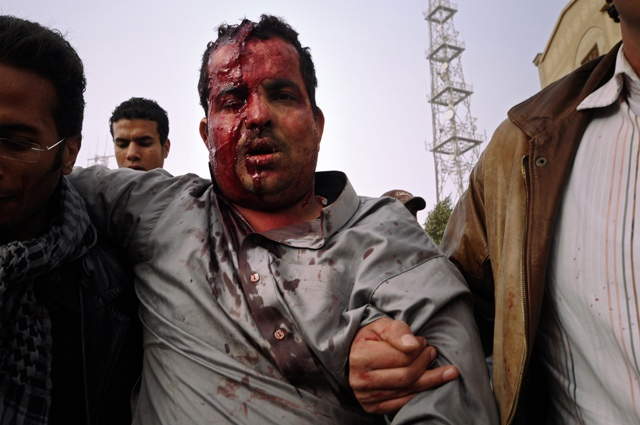
[Anti-Muslim Brotherhood protester being carried away by fellow protesters following a head injury he
suffered during clashes between the opposition and members of the Muslim Brotherhood near the
Brotherhood`s headquarters in Cairo, Egypt. 22 March 2013 (Photo by Jonathan Rashad)]
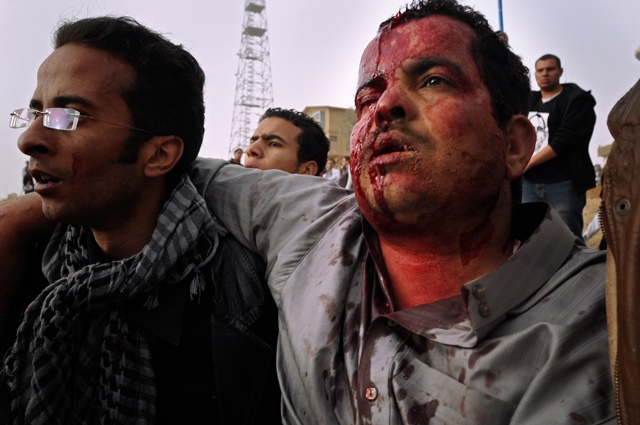
[Anti-Muslim Brotherhood protester being carried away by fellow protesters following a head injury he
suffered during clashes between the opposition and members of the Muslim Brotherhood near the
Brotherhood`s headquarters in Cairo, Egypt. 22 March 2013 (Photo by Jonathan Rashad)]
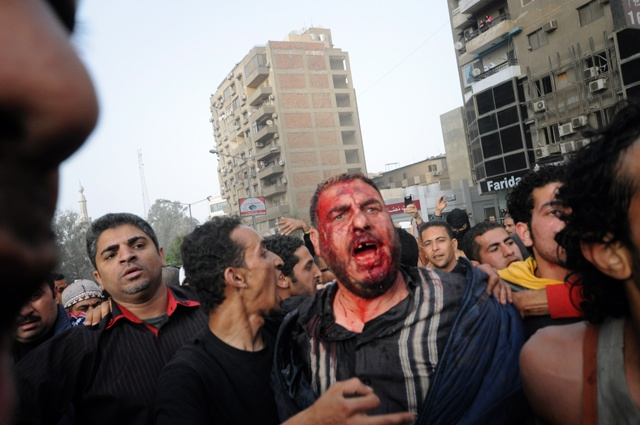
[An alleged member of the Muslim Brotherhood being escorted to the ambulance by protesters
opposed to President Mohamed Morsi following a head injury he suffered during clashes near the
Muslim Brotherhood’s headquarters in Cairo, Egypt. 22 March 2013 (Photo by Jonathan Rashad)]
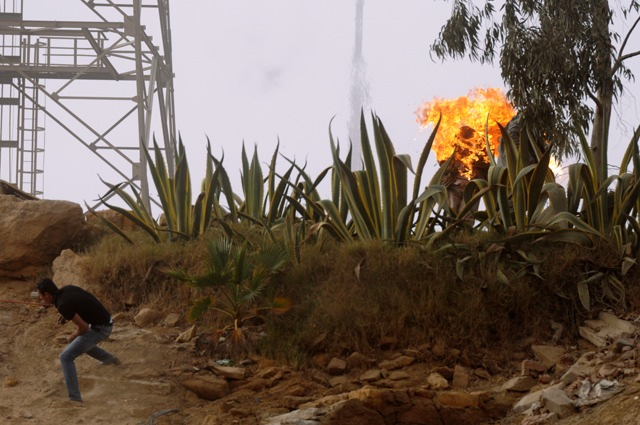
[Member of the Muslim Brotherhood set on fire as a petrol bomb was thrown at him by a anti-Morsi
protester during clashes near the Muslim Brotherhood’s headquarters in Cairo, Egypt. 22 March 2013
(Photo by Jonathan Rashad)]
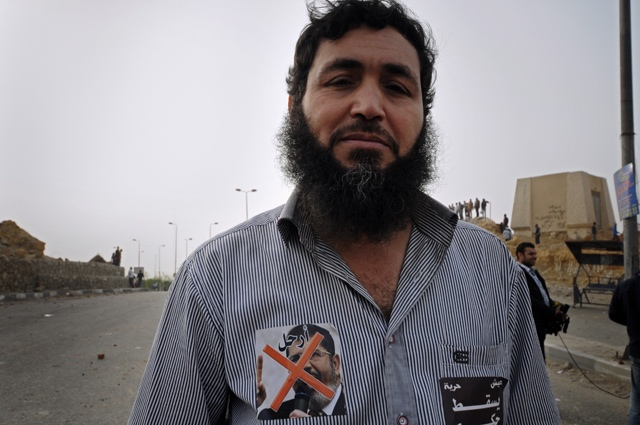
[A protester opposed to President Mohamed Morsi with an anti-Morsi sticker on his shirt during clashes
between the opposition and member of the Muslim Brotherhood near the Muslim Brotherhood’s
headquarters in Cairo, Egypt. 22 March 2013 (Photo by Jonathan Rashad)]
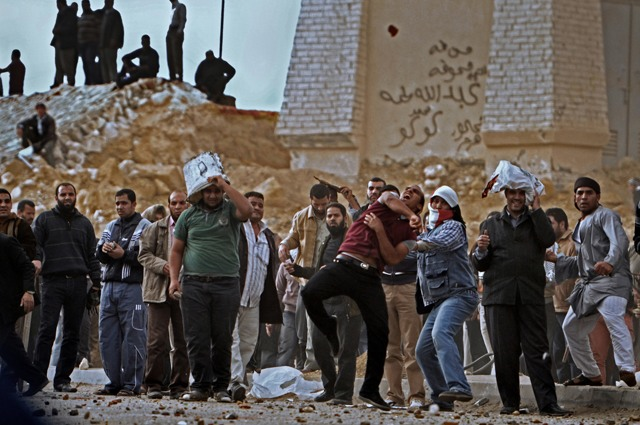
[Members of the Muslim Brotherhood clash with protesters opposed to President Mohamed Morsi near
the Muslim Brotherhood’s headquarters in Cairo, Egypt. 22 March 2013 (Photo by Jonathan Rashad)]
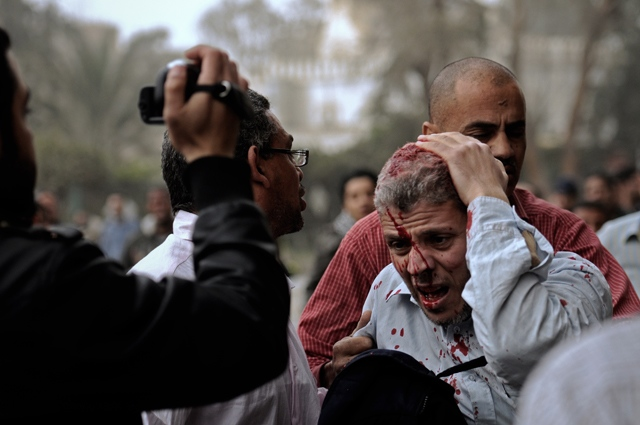
[Protester opposed to President Mohamed Morsi being escorted to ambulance following a heady injury
he suffered during clashes near the Muslim Brotherhood’s headquarters in Cairo, Egypt. 22 March 2013
(Photo by Jonathan Rashad)]
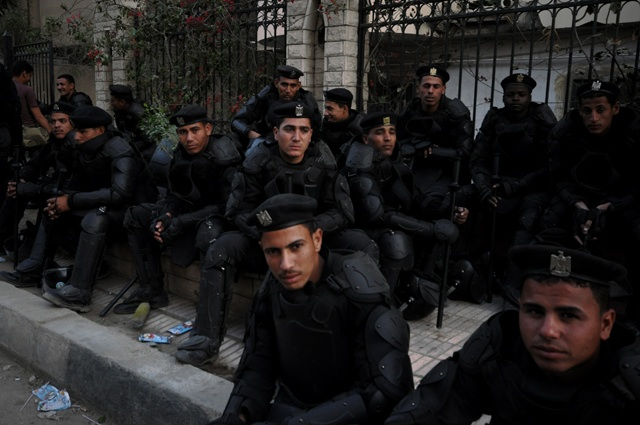
[Security forces guard the Muslim Brotherhood’s headquarters in Cairo, Egypt as protesters opposed to
President Mohamed Morsi clash with police nearby. 22 March 2013 (Photo by Jonathan Rashad)]
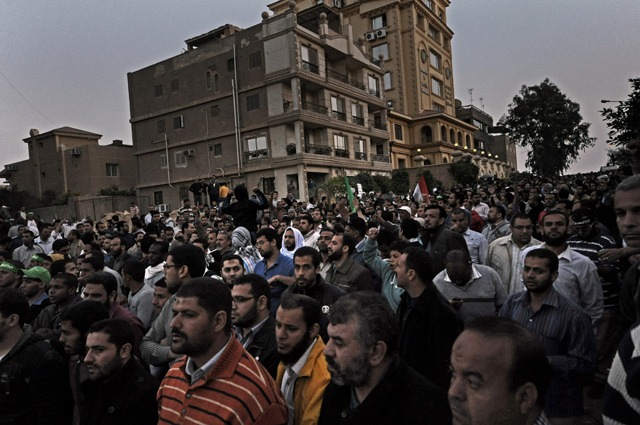
[Members of the Muslim Brotherhood gather outside their headquarters in Cairo, Egypt as protesters
opposed to the Brotherhood clash with the group’s members and police forces less than a mile away.
22 March 2013 (Photo by Jonathan Rashad)]
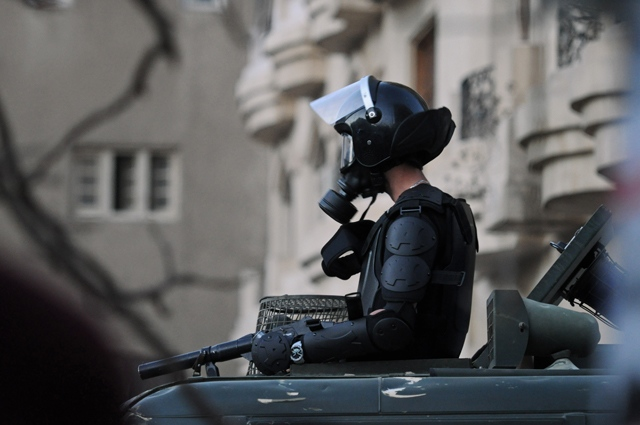
[An Egyptian riot police officer getting ready to fire tear gas as protesters opposed to President Mohamed
Morsi approach the Muslim Brotherhood’s headquarters in Cairo, Egypt. 22 March 2013
(Photo by Jonathan Rashad)]
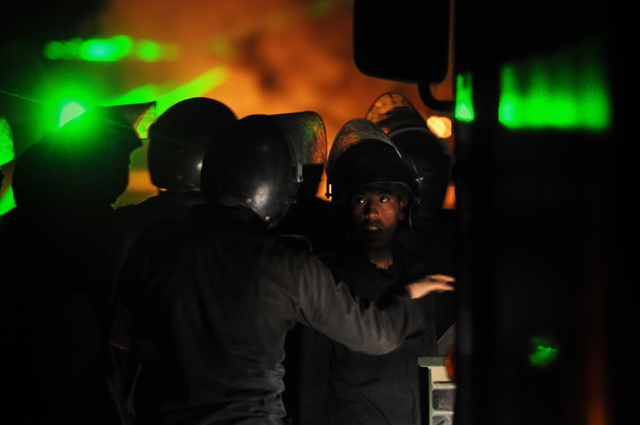
[An Egyptian riot police conscript takes an order from a superior as protesters point green lasers at them during clashes outside the Muslim Brotherhood’s headquarters in Cairo, Egypt. 22 March 2013 (Photo by Jonathan Rashad)]
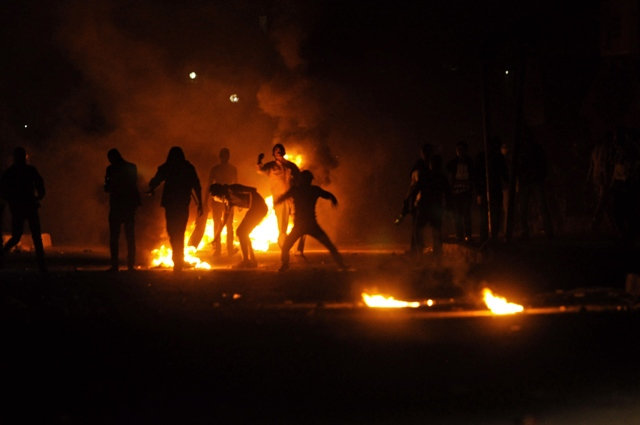
[Egyptian protesters gesture toward riot police during clashes outside the Muslim Brotherhood’s
headquarters in Cairo, Egypt. 22 March 2013 (Photo by Jonathan Rashad)]
![[Egyptian protesters gesture toward riot police during clashes outside the Muslim Brotherhood’s headquarters in Cairo, Egypt. 22 March 2013 (Photo by Jonathan Rashad)]](https://kms.jadaliyya.com/Images/357x383xo/Jonathan18.png)












